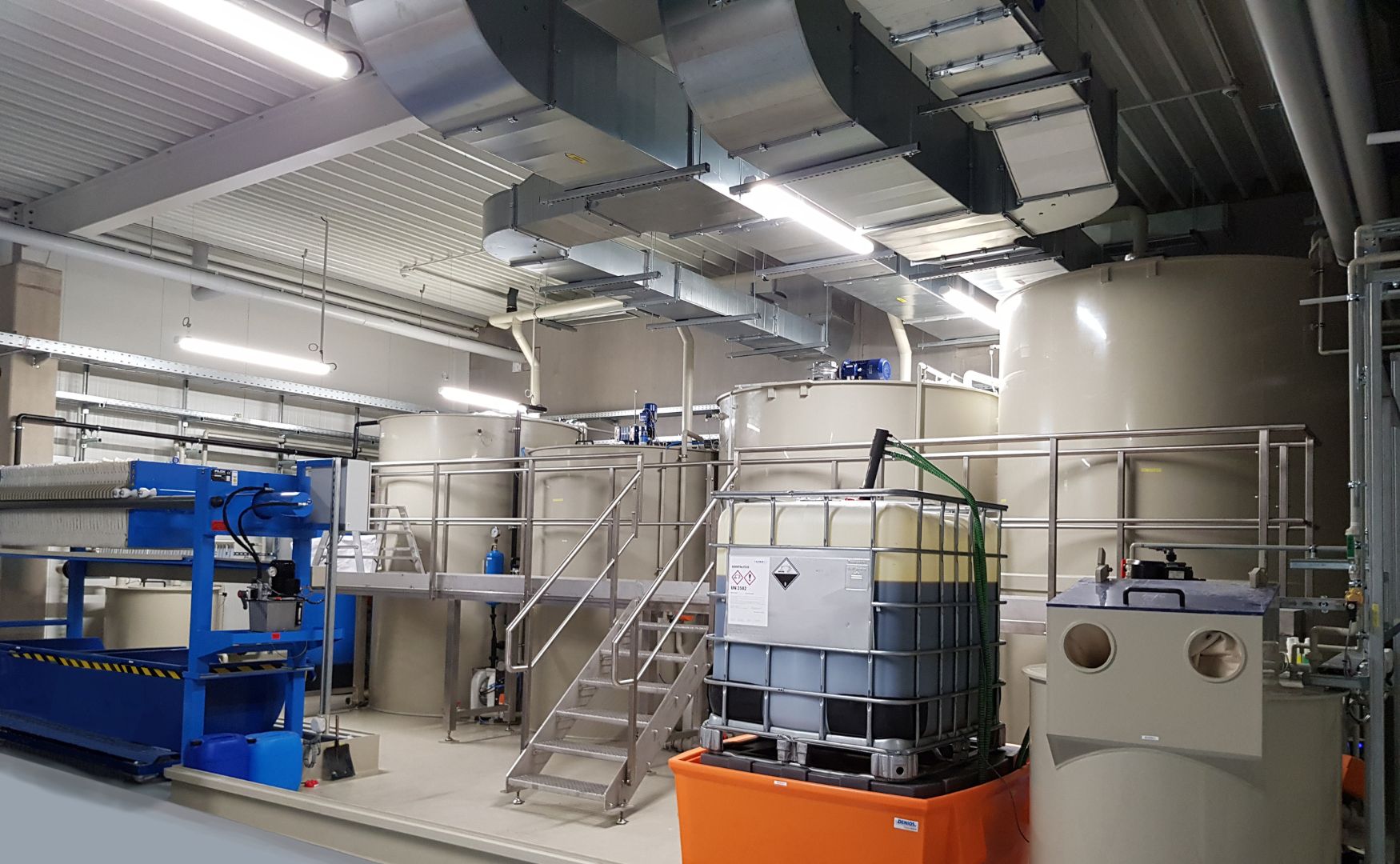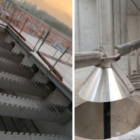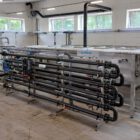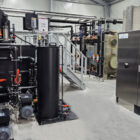Metallurgy encompasses the science and technology of extracting, processing and refining metals. Water plays a central role in industrial metallurgical processes, whether as a coolant, process water or wastewater. Water treatment is essential to ensure process efficiency, minimize environmental impact and comply with legal regulations. This glossary article provides a comprehensive explanation of the importance of water treatment in metallurgy, focusing on technical details, challenges and practical solutions.
Table of contents
The role of water in metallurgy
Water is used in metallurgy for a variety of applications, including:
- Cooling water: Metallurgical processes such as casting, forging and rolling generate immense heat. Cooling water is used to cool systems and workpieces.
- Process water: Water is used as a carrier or reaction medium in processes such as pickling, electroplating, hardening or electrolysis.
- Wastewater: Wastewater often contains dissolved metals, chemicals and solids that require extensive treatment before they can be recycled or disposed of.
Water quality requirements in metallurgy
The quality of the water used is crucial for the smooth operation of metallurgical processes. Different applications require specific parameters:
- Cooling water: Must be free of deposit and corrosion problems; low conductivity and pH stability are important.
- Process water: Requirements depend on the process, e.g. low hardness for pickling baths or low particle load for electroplating applications.
- Waste water: Must be treated for pollutants such as heavy metals, oil, organic compounds and suspended solids before disposal or reuse.
Challenges in water treatment in metallurgy
1. high metal concentrations in wastewater
- Wastewater from pickling processes or electroplating often contains heavy metals such as copper, nickel, chromium or zinc. These metals must be removed efficiently in order to comply with legal limits and enable recycling options.

Photo: Our ALMA CHEM MCW CP system for the treatment of wastewater containing heavy metals from the metalworking industry
2. oil and grease contamination
- Lubricants and oils from production processes can accumulate in wastewater and lead to problems such as biofouling or blockages in water treatment systems.
3. high temperatures
- Process wastewater and cooling water can have high temperatures, which can impair the efficiency of treatment and reduce the service life of systems.
4. deposits and scaling
- Deposits of calcium and magnesium compounds can clog heat exchangers and pipes and increase operating costs.
Water treatment technologies in metallurgy
1. mechanical separation processes
- Sedimentation: For removing coarse particles and solids.
- Lamella clarifier: Efficient pre-cleaning by accelerating sedimentation.
- Gravel and multi-layer filtration: Removal of fine particles from process and waste water.
2. chemical processes
- Precipitation and flocculation: Heavy metals are precipitated by chemical reactions as poorly soluble hydroxides and removed in wastewater treatment plants.
- Neutralization: Acids and alkalis are neutralized to stabilize the pH value.
3. membrane technologies
- Ultrafiltration: Removal of emulsions and fine particles, often as pre-treatment for reverse osmosis.
- Reverse osmosis (RO): To remove dissolved salts and pollutants in order to recycle waste water or improve water quality.
4. ion exchange
- Removes specific ions such as heavy metals or hardness constituents from water streams. Used in the treatment of process water or in waste water polishing.

Photo: Our ALMA ION selective ion exchanger system with upstream multi-layer filter in a cold rolling mill
Practical examples
1. pickling process in the steel industry
- Waste water from the pickling process contains high concentrations of iron and acids. The pollutants are removed by precipitation and neutralization in CP plants. The water is then treated using reverse osmosis and fed back into the process.
2. electroplating industry
- The waste water from electroplating contains heavy metals such as nickel or chromium. The pollutants are removed using CP systems and ion exchangers, while the water is reused for the process.
3. aluminum processing
- Wastewater containing oil is produced during aluminum production. This is first treated using ultrafiltration before the residual substances are removed using chemical processes.
Conclusion
Metallurgy places high demands on water treatment. Modern technologies such as CP systems, ion exchangers and membrane processes are essential to master the complex challenges. Efficient water treatment not only reduces environmental pollution, but also increases the economic efficiency of metallurgical processes. Companies that invest in innovative solutions secure their competitiveness and at the same time comply with stricter environmental regulations. The integration of water recycling and closed loops is a decisive step towards more sustainable metal processing.
For further information on our products, please feel free to contact us at any time!

Photo: Our CP system ALMA CHEM MCW with downstream ion exchangers, installed in the technical room container for a manufacturer of metallic functional materials








